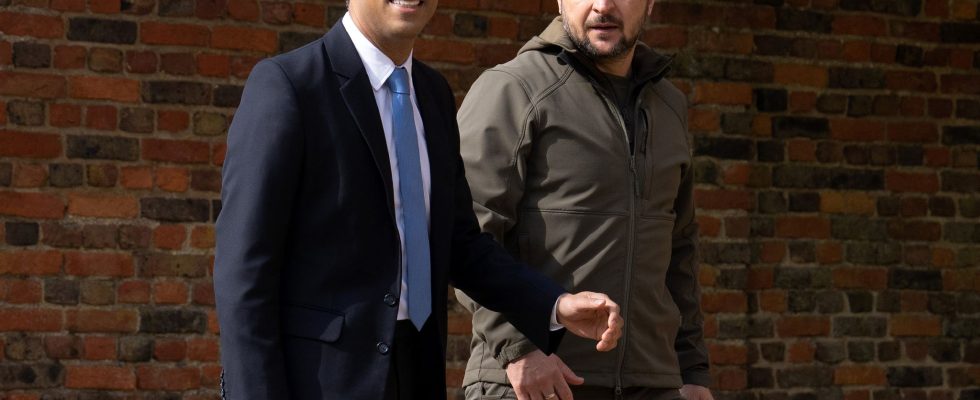He obtained additional weapons in Berlin, Paris and London; received the prestigious Charlemagne Prize in Aachen for his European commitment; met the pope; and completed his second mini European tour of the year in Denmark (a country which promised him 19 Caesar guns in January). A diplomatic faultless, even if his hosts did not grant him the combat planes requested.
Long reclusive in his country attacked by Russia, Volodymyr Zelensky has been increasing his trips to Europe in recent weeks, in full preparation for the Ukrainian counter-offensive. A Zelensky method is emerging. First, to plead tirelessly for the sending of arms, explaining how they would be useful to him. It has received significant commitments this month from the United Kingdom (including long-range missiles, a first), from Germany (which, after being reluctant at the start of the conflict, is at the forefront of the European military aid, with additional aid of 2.7 billion euros) and France (dozens of armored vehicles and light tanks).
Eager to join the EU, the Ukrainian president has been able to play the card of European unity, taking into account the different sensitivities on the Old Continent on how to wage war. In doing so, it prepares the ground before the major international meetings of the coming months, the G7 in Hiroshima, the European Council in Brussels and the NATO summit in Vilnius. “Zelensky is trying to cultivate key countries within the EU while preserving a balance: he takes care of the states with the strongest political support (Nordic and Baltic countries, Poland), while cultivating his relations with the major European capitals of the EU. West”, notes Marie Dumoulin, director of the Wider Europe program at the ECFR. Zelensky thus spoke at the beginning of May in Finland with the five leaders of the Nordic countries, with entry into NATO in sight.
The man who embodies symbolic resistance does not neglect more symbolic visits either, as when he recently went to The Hague, seat of the International Criminal Court, in order to demand “a real tribunal”, “a Nuremberg” for judging Russian leaders. The art of trying to win the war while projecting oneself into the aftermath.
